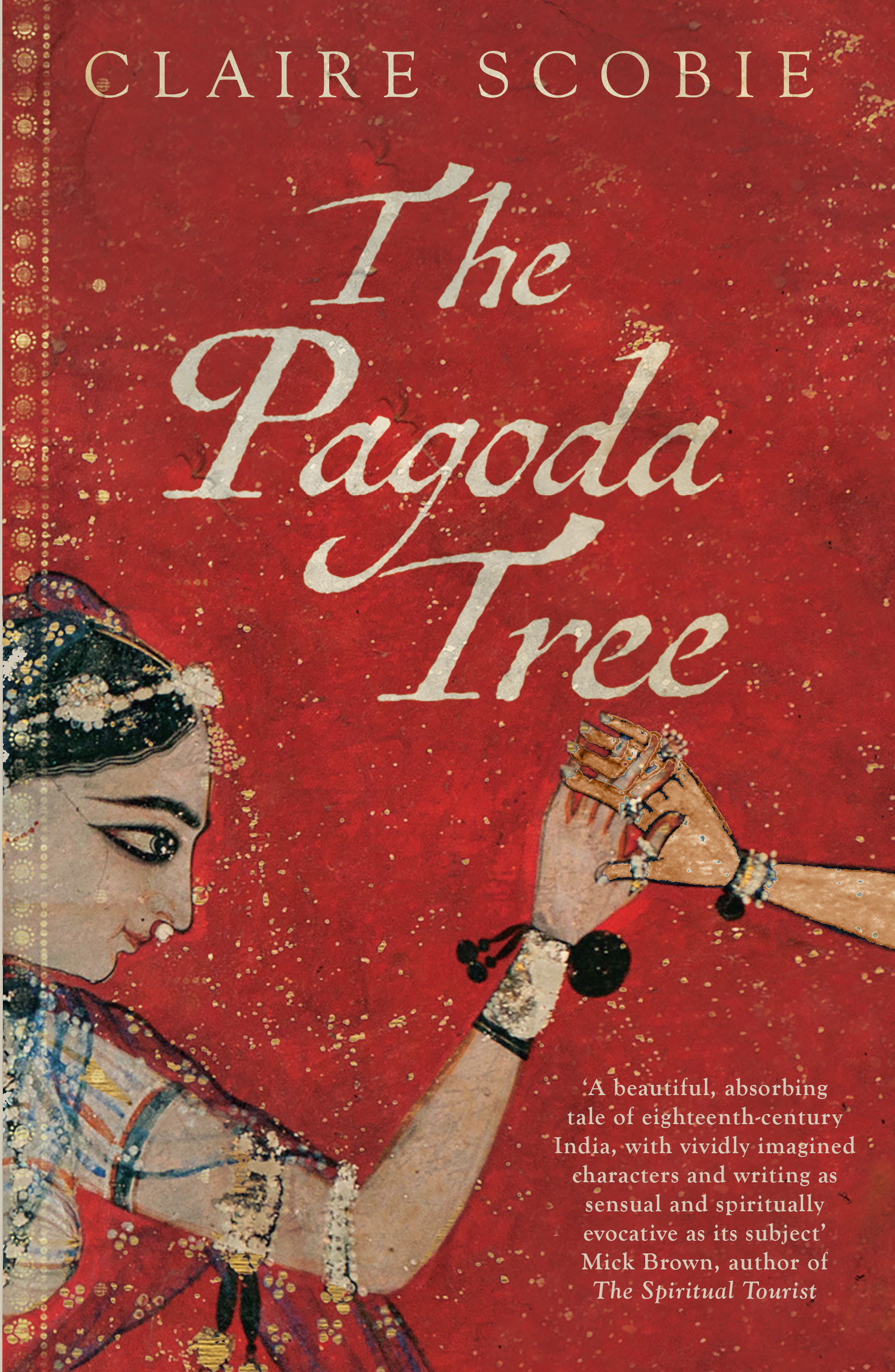What other writers say
‘Scrupulously imagined and vividly detailed, Claire Scobie brilliantly evokes India on the eve of British rule, along with the complications that arise from an uneasy mix of cultures.’ Manju Kapur, Custody
‘A beautiful, absorbing tale of eighteenth-century India, with vividly imagined characters and writing as sensual and spiritually evocative as its subject.’ Mick Brown, The Spiritual Tourist
‘In evocative prose Claire Scobie sketches a layered eighteenth-century world of temple dancers, traders and imperialists. Meticulously researched, the writing packs an emotional punch.’ Pallavi Aiyar, Punjabi Parmesan: Dispatches from a Europe in Crisis
‘A moving, empathetic novel set in eighteenth-century India.’ Namita Gokhale, Things to Leave Behind
‘The Pagoda Tree is a gripping and vivid page-turner even as it cleaves to history. Claire Scobie’s tightly scripted novel is about lost artistry and lost humanity. Her brilliance lies in depicting the complex nuances of the devadasi culture and the temple dancers of south India when the selling of female talent to the highest bidder was no longer determined by caste, but the content of a man’s wallet. Scobie shows the colonisers as brutal and exploitative, but the novel’s centre is Maya who, like her name, embodies the illusion of power.’ Malashri Lal, co-editor, Speaking for Myself: Women’s Writing in Asia
‘Claire Scobie’s seductive prose and immaculate layering of period detail capture India at her most exotic.’ Susan Kurosawa, The Australian travel editor
‘Women’s stories are rarely told in history, nor particularly honoured. The Pagoda Tree offers a powerful, sensual perspective on a time of great transformation in India.’ Sarah Macdonald, author of Holy Cow
‘The Pagoda Tree is set in 18th century Southern India with all its colour and brutality. It’s a vast canvas for anyone to tackle but Claire is an intrepid traveller and has spent a great deal of time in that part of the world. Reading the book gives one a sense of how deeply she is connected to that place. I can only imagine the enormous amount of research that has gone into writing this book. [Yet] it’s something of a miracle that this research is all but invisible.
The experience of reading The Pagoda Tree is not like opening a window to that 18th century world. We are not dazzled by scholarship. The novel is very much time present. We are not observers of this world, we are inside it. It’s immediate, it’s visceral. The textures, the sounds, the smells surround us. It’s an immersive experience… .
As a writer Claire has guts. There is a toughness to her work. She is unflinching when it comes to writing scenes of great brutality and unbearable suffering. A lesser writer would allow us to turn away. She holds us close too for those moments of great intimacy and tenderness that, for me, are the very heart of the book.
For this novel is as much about love as it is about exile. It’s a rich and enthralling story handled with great skill by someone with a profound understanding of her material.’
David Roach, screenwriter and film director, Beneath Hill 60 & Red Obssession

